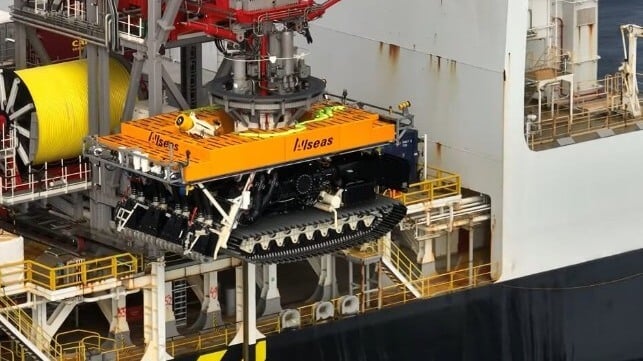Op-Ed: To Compete With China, U.S. Needs a Policy on Deep-Sea Mining

[By Georgina Lancaster]
Deep-sea mining is emerging as a new frontier of resource extraction. A race is underway for underwater resources with important economic, environmental and geopolitical implications.
For Pacific island countries, deep-sea mining offers economic opportunities and international leverage but risks severe ecological damage. It could reshape regional alliances and traditional power dynamics as China advances its activities to secure critical minerals and bolster its influence. The US faces challenges in maintaining stability and countering Beijing’s influence.
In the Pacific Ocean there are vast reserves of critical minerals, such as cobalt, nickel and other rare earth elements, that raise national security concerns due to their technological uses. For example, these minerals have applications in such renewable technologies as electric vehicles, solar panels, and wind turbines and in defense technologies such as missiles, aerospace parts, magnetic systems and radar. Competition for critical resources complicates American and Chinese tussles for influence in the Pacific and regional and global concerns about energy transitions and environmental degradation.
With rich deposits of minerals in their exclusive economic zones, deep sea mining promises Pacific islands wealth, enhanced international status and leverage—for example, through influence in negotiations or economic bargaining power. Experts have determined that the value of seabed minerals could reach up to US$20 trillion.
However, the potential economic benefit must be weighed against ecological damage and natural resource depletion. Studies have shown that the disruption of deep-sea ecosystems, whether on abyssal plains or hydrothermal vents, could harm deep ocean biodiversity and affect fisheries, such as tuna stocks, that local communities rely on for food and income. Also, sediment plumes and waste from mining activities could diminish water quality, posing risks to tourism, a vital economic sector for many island nations.
Deep sea mining is dividing the region and may impede cooperation. Nauru and Tonga have each granted exploration licenses to subsidiaries of The Metals Company, a Canadian company that specializes in deep-sea mining exploration. Kiribati’s state minerals exploration company has an agreement to sell deep-water tenements to The Metals Company.
The Cook Islands is moving cautiously, still looking at the feasibility of deep-sea mining. The Melanesian Spearhead Group, which includes Fiji, PNG, the Solomon Islands, and Vanuatu, has instituted a moratorium on it. Its members worry about environmental degradation and damage to marine ecosystems, which are at the heart of their cultural identity and livelihoods.
The International Seabed Authority is the multinational organization responsible for creating a regulatory framework and overseeing deep-sea mining. Other stakeholders, including Pacific governments, mining corporations , and environmental advocacy groups, also play roles in shaping the region’s approach to deep-sea mining.
China has positioned itself as a leader in deep-sea mining for access to resources and to gain favor with Pacific island states. Beijing’s strategic engagements with Tonga and Nauru on infrastructure investments and financial aid, and with Kiribati on fisheries and maritime domain access, reflect China’s efforts to expand its Belt and Road Initiative into the Pacific to develop economic dependence. Increased influence would allow China to shape international seabed mining regulations, secure and dominate access to minerals necessary for green energy technologies and defense systems, control strategic maritime routes, and potentially establish a military presence in the region.
From a US perspective, China’s activities in the Pacific threaten its regional influence. Its growing presence has implications for US interests and military operations. The US needs to monitor China’s activities, develop strategies to counterbalance Beijing’s influence, and reassess its own approach to deep sea mining to maintain competitiveness and sustainability.
Developing precautionary deep-sea mining policies would allow the US to lead responsibly and in doing so strengthen Pacific partnerships. Through collaboration that balances economic opportunities with environmental responsibilities, the US and the Pacific islands can align policies and mutual interests, fostering relationships built on mutual respect. This strategy would not only ensure that resource extraction supports long-term regional stability, environmental preservation and partnerships, but would counter Beijing’s influence.

that matters most
Get the latest maritime news delivered to your inbox daily.
Georgina Lancaster is an analyst intern with ASPI’s Washington office.
This article appears courtesy of The Strategist and may be found in its original form here.
The opinions expressed herein are the author's and not necessarily those of The Maritime Executive.
